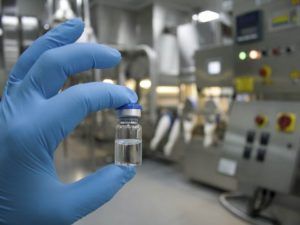. @hjbentham . @clubofinfo . @dissidentvoice_ .#tech .#gmo .#ethics . @ieet .
Since giving my support to the May 24 march against Monsanto, I have taken the time to review some of the more unusual opinions in the debate over genetically-modified organisms (GMOs). The enthusiasts for technological development as a means of eliminating scarcity and disparity view GMOs favorably. These enthusiasts include Ramez Naam, whose book The Infinite Resource (2013) argues for human ingenuity as a sufficient force to overcome all resources shortages.
On the other end of the spectrum, alarmists like Daniel Estulin and William Engdahl argue that GMOs are actually part of a deliberate plot to burden poor nations and reduce their populations by creating illness and infertility. Such fringe figures in the alter-globalization movement regard big pharmaceutical companies, chemical companies and agri-giants as involved in a conspiracy to create a docile and dependent population. Are the opinions of either Naam or Estulin well-informed, or are they both too sensational?
Most commentators on the GMO controversy, unfortunately, seem to lean towards either the enthusiast or alarmist categories as described. Reason is often lacking on both sides, as people either blindly leap onto the GMO bandwagon as something tantamount to human progress, or they reject all biotechnology as evil by renewing the fallacy that unnatural actions are necessarily bad. The only thing both sides seem to have in common is their resistance to the Malthusian Club of Rome’s insinuations that overpopulation has to be rolled back to save the Earth’s resources.
Ramez Naam persuades us that the fire of human intellect can overcome our limited resources and allow tens of billions of people to exist on our planet without consuming all natural resources. Estulin and Engdahl reject the Club of Rome on the basis that resource limitations do not really exist and the analysis of the Club of Rome is simply aimed at justifying control of the Earth’s resources by the cherished few “elites”.
The truth rests somewhere between what the alarmist fringe critics of GMOs and the techno-progressive enthusiasts are trying to tell us. To be truthful, there is a serious controversy involving GMOs, but it is no outlandish conspiracy in any sense. It is merely an extension of the problem of greed that has burdened mankind for as long as feudal lords or capitalists have been privileged to put their selfish interests above the common good. The problem with GMOs is neither the nature of GM technology, nor something mysterious that takes place in the process of genetic modification. It is the nature of the businesses tasked with running this industry.
Whether or not certain GMOs on the market today actually cause cancer and infertility is irrelevant to the real debate. The problem is that we can guarantee that the companies engineering these organisms do not care if they cause health problems. They are only interested in downplaying or blocking bad news, and putting out constant marketing and good news about themselves. Typical of any fiercely monopolistic firm, this is not an honest relationship with the public, and corresponds to the prevailing belief in profit as the exclusive priority. For their game to be worth playing, they have to put increasing yields, shelf life and resistance to pathogens above anything else when designing crops. They have no choice than to do this, from their perspective, because the alternative is to allow themselves to be outperformed by their rivals.
The fact that corporations put their own profit above health is a systemic issue in the world economy, and it is already known to the majority of consumers. We face it every day. Most of the fast food served by multinational fast food companies is accepted to be unhealthy, so the claim that giant food companies have little interest in our health is not a conspiracy theory. It is only a rational suspicion that the agricultural producers of seeds will also put profit over the long-term health of consumers and the interests of local farmers.
In theory, genetic modification could lead not only to higher yields but healthier food. Unfortunately, the businesses involved only really care about beating competition and becoming the best supplier. This behavior poisons everything, perhaps literally, now that these companies have been entrusted to define the toxicity in crops as a defense against pests. What we can learn from this that the problem is not GMOs per se, but the aggressive greed of the corporations who desire the oligopoly on food production via GM technology.
The public harm caused by giant firms, especially when they practice their ability to lobby the state itself, already runs very deep in most facets of life. The more significant the tools made available to such firms, the greater the potential for harm. Even if specific specimens are not harmful and can be proven completely benign, the fact is that GMOs open up an unacceptable avenue for unprecedented harm and malignant corporate interests invading people’s innards. It is this, rather than the whole science of genetic modification, that should be opposed and protested against.
Genetic modification and synthetic biology do not need to be new instruments of oligopoly and monopoly. There is a benign alternative to foolishly entrusting the mastery and ownership of living organisms to greedy multinational leviathans. We can look into “biohacking”, as popularized by science and technology enthusiasts who favor the empowerment of individuals and small businesses rather than corporations. There is a strong nod in this direction in J. Craig Venter’s book, Life at the Speed of Light (2013), in which he envisages living organisms being quickly customized and modified by lone individuals with the technology of synthetic biology. Such a development would transform society for the better, eliminating any need to trust an unsympathetic and self-interested corporation like Monsanto.
DIY genetic engineering is already possible. DIY means the product will be entirely disinfected from corporate greed, and adhere to your own specifications. They would not be able to put their profit above your health, because they would not get the chance. With this, biohackers can already genetically modify organisms for their own benefit. The extent to which farmers can begin to modify their own crops using comparable technology is not yet clear, but the development nevertheless represents an extraordinary possibility.
What if farmers and consumers could decide genetically modify their own food? In that case, it would not be the profit-oriented poison that is being consumed at so many different levels as a result of corporate greed. Crops would be modified only insofar as the modification will meet the farmer’s own needs, and all the technology for this process could be open-source. This hypothetical struggle for DIY genetic engineering rather than corporate genetic engineering would be comparable to the open-source and piracy battles already raging over digital technology.
Of course, some new hazards could still conceivably emerge from DIY genetic modification, if the technology for it should become ubiquitous. However, the only risk would be from individual farmers rather than unaccountable corporations. This way, we would be moving away from giving irresponsible and vicious companies the ability to threaten health. Instead, we would be moving towards giving back individuals more control over their own diets. Of course, abuse would still occur, but it would not have global consequences or frighten millions of people in the way that current genetic engineering does.
In sum, there is no reason to complain that genetic modification is perilous in its own right. However, there is always peril in giving a great social responsibility to a profit-hungry corporation. In much the same way that large firms have captured the state machinery of our liberal democratic states to serve their greedy interests, we should expect them to be subverting health and the public good for profit.
The complex dilemma over GMOs requires not an anti-scientific or neo-Luddite reaction, but an acknowledgement that intertwined monopolistic, statist and hegemonic ambitions lead to the retardation of technology rather than progress. I have made this very case in an essay at the techno-politics magazine ClubOfINFO, and I consider it to be an important detail to keep in mind as the GMO controversy rages.
By Harry J. Bentham - More articles by Harry J. Bentham
Originally published at Dissident Voice on 23 June 2014




